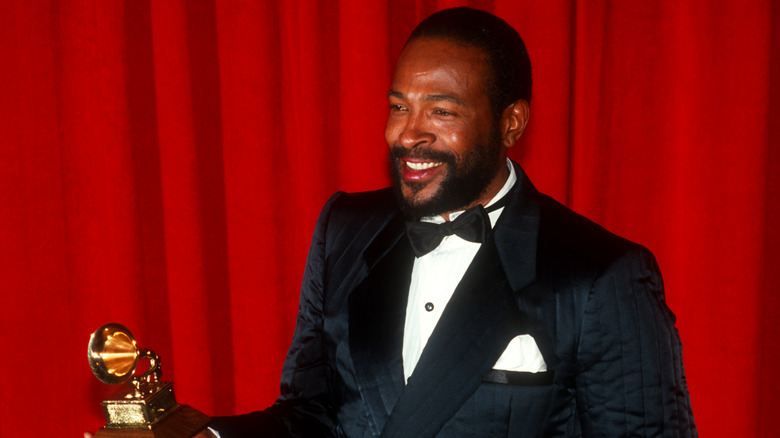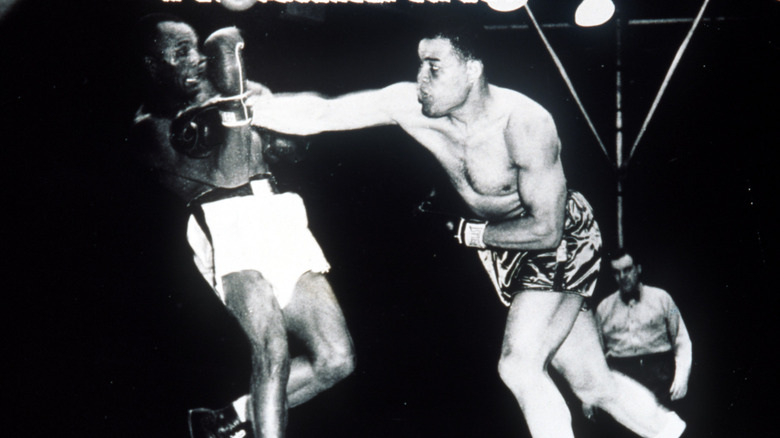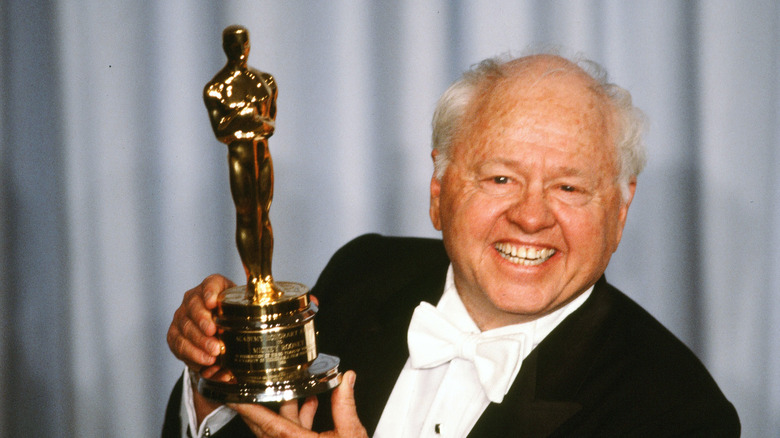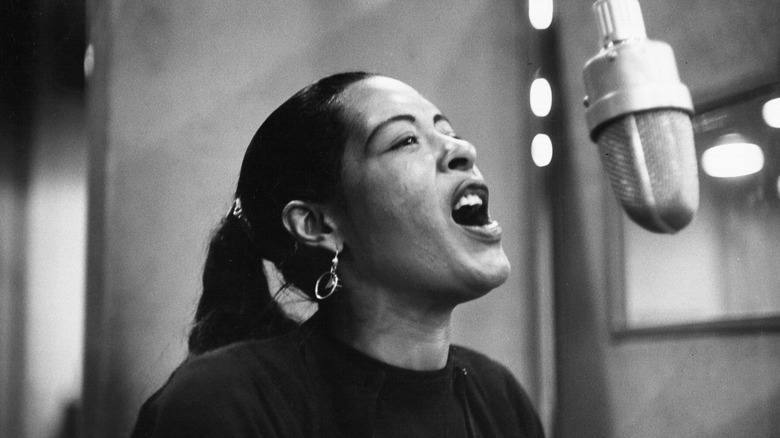Celebrities That Died With A Lot Of Debt
Many people think being a celebrity means living a perfect life — big houses, fancy cars, designer clothes, and more money than most of us could ever imagine. But even for the most famous stars, life can be hard. Some end up with serious money problems. In fact, despite earning millions, a number of them died owing huge amounts of debt.
The reasons are often a mix of spending too much, trusting the wrong people, and making poor life choices. Some stars spend money faster than they can earn it. Others let managers, advisers, or even family members handle their finances, only to find out the money was mismanaged. Personal struggles like addiction, health problems, or expensive divorces can also lead to massive bills. And taxes can be a big problem too — the government can demand millions from estates that are already in trouble, quickly draining even the largest fortunes.
Being famous doesn't guarantee being rich forever. In this article, we'll look at well‑known stars — from music legends like Michael Jackson and Whitney Houston to Hollywood icons like Judy Garland and Mickey Rooney — who died with more debt than wealth. Many of them owed more than most people will earn in their entire lives. Their stories show how quickly money can disappear, and how the pressures of fame can make it even harder to make smart financial choices.
Michael Jackson – Died in 2009 with an estimated $500 million in debt
Over his career, the "King of Pop" had earned more than a billion dollars when he unexpectedly died in 2009. He had changed music, dance, and pop culture forever. But court records later showed a surprising truth — at the time of his death, Jackson was more than $500 million in debt. He drained his money by lavishly spending for years. Just keeping up his famous Neverland Ranch cost $5 million a year to maintain, and he was known for buying expensive art, antiques, and luxury items.
To cover his expenses, Jackson borrowed large sums of money, using his most valuable asset — his music catalog, which included the rights to Beatles songs — as collateral. Some of these loans had extremely high interest rates, making them even harder to repay. In addition to this financial burden, legal battles and settlements also took a toll on his wealth. Public scandals and allegations of child molestation further damaged his reputation and led to a decrease in album sales and concert attendance.
Jackson had hoped to fix his money problems with his "This Is It" concert series in London, a 50‑show run that was expected to bring in hundreds of millions. But his sudden death stopped those plans, leaving his estate caught in a web of lawsuits and claims from many creditors. Thanks to the enormous value of Jackson's music catalog, the co-executors of Michael Jackson's estate were able to pay off all of his debts and still have a substantial amount left over. Today, his estate is worth $2 billion, a sharp contrast to the financial chaos he faced while alive.
Whitney Houston - Died in 2012 with an estimated $20 million in debt
Whitney Houston was one of the most powerful and beloved voices in music history. Over her career, she sold more than 200 million albums, won six Grammy Awards, and earned a Guinness World Record as the most awarded female artist of all time, with over 400 career awards. She remains the only artist in history to have seven consecutive number‑one singles on the Billboard Hot 100, from 1985's Saving All My Love for You to 1988's Where Do Broken Hearts Go. After starring in hit films like The Bodyguard, she signed a $100 million record deal — the largest ever for a female artist at the time.
But by the time she died in February 2012, from accidental drowning with heart disease and cocaine use listed as contributing factors, reports estimated she was about $20 million in debt. Her financial troubles had many causes. Whitney lived lavishly, buying expensive homes, cars, and jewelry, and supporting a wide circle of friends and family. Her long struggle with drug addiction was the biggest factor, leading to canceled tours, poor album sales, and long breaks from performing — all of which meant less income. Her marriage to singer Bobby Brown was also costly, and their 2007 divorce brought legal fees and settlements that added to her debt.
In her final years, Whitney was reportedly behind on mortgage payments for her properties in New Jersey and Georgia. She had gone from being one of the highest‑paid singers in the world to relying on advances from her record label just to cover living expenses. Today, her estate is worth around $100 million, thanks to streaming, licensing, and posthumous releases that keep her music alive for new generations.
Sammy Davis Jr. - Died in 1990 with an estimated $15 million in debt
Sammy Davis Jr. was one of the most talented entertainers of the 20th century. He could sing, dance, act, and play multiple instruments, and he broke racial barriers in Hollywood and on stage. As a member of the famous Rat Pack alongside Frank Sinatra and Dean Martin, he performed to sold‑out crowds, and over his career, he earned an estimated $50 million. But despite his success, Davis's finances were in serious trouble by the late 1980s. When he died in 1990, just 18 months after being diagnosed with throat cancer, he was $15 million in debt.
Davis was known for his generosity and love of the high life. He bought expensive homes, cars, and jewelry, and often gave lavish gifts to friends and family. Unfortunately, he also invested in risky tax shelters that failed, and the IRS disallowed the deductions. By the late 1980s, the IRS claimed he owed millions in back taxes. This left him with a massive tax bill — about $7 million at first, which grew with interest and penalties to roughly $15 million.
In his later years, Davis was diagnosed with throat cancer, which ended his ability to perform, just when he needed income the most. Without steady work, his debts became impossible to manage. When he died in May 1990 at the age of 64, his estate had little cash and was forced to sell assets, including rights to his name, image, and music catalog, to settle what he owed.
Marvin Gaye - Died in 1984 with an estimated $9 million in debt
"Marvin Gaye was known as the "Prince of Soul," creating timeless hits like "What's Going On," "Let's Get It On," and "Sexual Healing." He won a Grammy in 1982 His music shaped the sound of Motown and influenced generations of artists. But behind the success, Gaye's personal life was filled with turmoil. By the time of his death in 1984, he was $9.2 million in debt. Nearly half of that was owed to the IRS.
Gaye's financial problems were tied to several factors. His cocaine addiction drained his money and damaged his career. His divorce from Anna Gordy Gaye was especially costly — as part of the settlement, he agreed to give her the $600,000 in royalties from his album Here, My Dear. He also had a habit of spending freely, often without thinking about the long‑term consequences.
In the early 1980s, Gaye moved to Europe to escape his tax problems in the United States. While living abroad, he tried to rebuild his career, but the debts continued to grow. His 1982 hit "Sexual Healing" brought him back into the spotlight, but it wasn't enough to solve his financial troubles. Tragically, Gaye's life ended when his father shot him during a family argument in Los Angeles. His estate eventually used his music catalog to pay off debts, but during his lifetime, he never regained the financial stability his talent should have secured.
Judy Garland - Died in 1969 with an estimated $4 million in debt
Judy Garland will forever be remembered as Dorothy in "The Wizard of Oz," singing "Somewhere Over the Rainbow" in one of the most famous scenes in movie history. She was one of Hollywood's biggest stars in the 1930s and 1940s, earning millions over her career. But by the time she died in 1969, from an accidental overdose, she was deeply in debt, owing around $4 million, a huge sum at the time.
Garland's financial troubles came from a mix of poor management, personal struggles, and the pressures of fame. She was under contract with MGM Studios for years, but like many stars of her era, she didn't own the rights to her films or receive royalties. She was reportedly swindled by her managers, which left her in a desperate financial state. Much of her income was spent as quickly as it came in, and she had little savings. Her lifelong battle with drug and alcohol addiction, as well as health issues, led to financial instability and the inability to work consistently.
By the mid‑1960s, the IRS was after her for unpaid taxes, and she owed hundreds of thousands of dollars. To make ends meet, she took whatever work she could find — singing in small clubs, appearing on television, and touring internationally. These performances were often grueling, and the New York Times noted that her health suffered. In her final years, Garland was living in London, performing in small venues to pay off debts. She died at just 47 years old, leaving behind little more than her unmatched legacy as a performer.
Joe Louis – Died in 1981 still owing millions
Joe Louis, known as the "Brown Bomber," was one of the greatest heavyweight boxing champions in history. Between 1937 and 1949, he defended his title 25 times, earning millions of dollars and becoming a national hero. But despite his success in the ring, Louis spent much of his life in a losing battle with the IRS. During World War II, Louis donated huge sums to military charities, but the IRS still taxed him on the income.
Combined with the extremely high tax rates of the 1940s — sometimes up to 90% — this left him with a massive tax bill. By 1956, the IRS said he owed more than $1 million in back taxes, penalties, and interest. That would be worth nearly $12 million today. Unable to pay such a huge sum, Louis reached an agreement with the government: he would pay $20,000 a year toward the debt until it was cleared.
The arrangement kept him out of prison, but it also meant he had to keep working long after his boxing career ended. He fought well past his prime, took jobs as a referee, and even worked as a greeter at Caesars Palace in Las Vegas to make the payments, according to the New York Times. When Louis died in 1981, he still owed money to the IRS despite efforts to pay it off through boxing and other jobs.
Gary Coleman - Died in 2010 with an estimated $75,000 in debt
Gary Coleman became a household name in the late 1970s and early 1980s as Arnold Jackson on the hit sitcom "Diff'rent Strokes," earning $100,000 per episode ($390k in 2025). His charm and comedic timing made him one of the most popular child actors of his time, and he earned millions during the show's run. Coleman was once the highest-paid child actor in America. But by adulthood, Coleman's finances had collapsed.
In 1989, he sued his adoptive parents and former business adviser, claiming they had mismanaged his $18 million trust fund. He eventually won a $1.3 million settlement, but much of it was eaten up by legal fees. Coleman also faced lifelong medical problems due to a kidney condition, which required expensive treatments and limited his ability to work. By age 30, he had lost most of his wealth and worked on movie sets as a security guard.
In the years before his death, Coleman was involved in multiple lawsuits, including disputes with his ex‑wife. He filed for bankruptcy in 1999, with Time citing debts of $72,000. When he died in 2010 at the age of 42 due to a brain hemorrhage, his estate was small and contested, with legal battles over who should inherit what little he had left.
Mickey Rooney - Died in 2014 with an estate worth only $18,000
Mickey Rooney was once one of the biggest stars in Hollywood. In the late 1930s and early 1940s, he was the top box office draw in America and Hollywood's highest-paid actor. He starred in hit films like the "Andy Hardy" series and "National Velvet." Over his career, he appeared in more than 300 movies and earned millions of dollars. But by the time he died in 2014 at the age of 93, his estate was worth only about $18,000.
In his later years, Rooney became a victim of elder financial abuse. A stepson and his wife were accused of taking control of his finances and misusing his money. Chris Aber, the movie star's stepson, allegedly stole $8.5 million but filed for bankruptcy and never paid the $2.8 million civil settlement he agreed to. In 2011, Rooney testified before the U.S. Senate about the abuse, describing how he had been left without access to his own funds and sometimes without enough to eat.
He also owed back taxes to the IRS, according to the LA Times, adding to his financial troubles. Despite his fame, Rooney spent his final years living modestly, relying on the care of another stepson who helped protect him from further exploitation. His will left his small estate to that stepson, bypassing most of his large family.
Billie Holiday - Died in 1959 with an estate worth only $750
Billie Holiday, known as "Lady Day," was one of the most influential jazz singers of all time. Her voice, full of emotion and pain, made songs like "Strange Fruit" and "God Bless the Child" unforgettable. Holiday won four Grammy Awards, all of them posthumously, for Best Historical Album. By 1947, Billie Holiday had reached her commercial peak, earning $250,000 ($3.62 million in 2025) over the previous three years. However, her personal life was marked by hardship, and her finances suffered as a result.
Holiday struggled with heroin and alcohol addiction for much of her adult life. These addictions led to repeated arrests for drug possession, which damaged her career and cost her valuable performance opportunities. Legal fees piled up, and she often had to take low‑paying gigs just to survive. By the 1950s, Billie Holiday's health had deteriorated due to her drug and alcohol use and abusive relationships. She was also banned from performing in New York City's nightclubs because of her criminal record.
When she was hospitalized in 1959 for heart and liver problems, police arrested her again for drug possession. She died at just of heart failure caused by cirrhosis of the liver at 44 years old. At the time of her death, NPR reported she had only $750 in cash strapped to her leg and 70 cents in her bank account.









